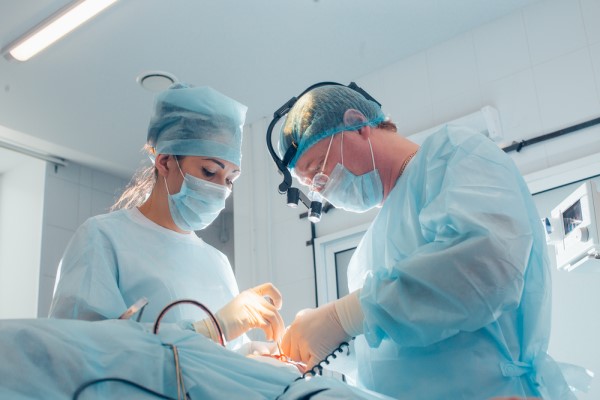What Type of Doctor Performs Plastic Surgery?

Plastic surgery is a broad medical field and includes many different kinds of cosmetic and corrective surgical procedures. All these different procedures have the same end goal, which is to restore or enhance the appearance of a specific part of the body.
This means there are as many specialties of plastic surgery as there are procedures. A person should be wary of a plastic surgeon who claims to perform every kind of cosmetic or reconstructive procedure there is. Which brings up the question: What type of doctor performs plastic surgery?
An overview of plastic surgery
This field includes elective or cosmetic procedures. It also covers reconstructive surgery, which is used to correct imperfections caused by injury, illness, a medical condition, or birth defects. It could be said that cosmetic surgery is actually a subset of plastic surgery, which is a much wider field.
Plastic surgery is performed by plastic surgeons, the keyword here being surgeons. All plastic surgeons, like other types of surgeons, are medical doctors. However. cosmetic surgeons and plastic surgeons take different paths after graduating from medical school. Here is a description of both these career paths.
Cosmetic surgery
Cosmetic surgery is performed on body parts that are already fully functional, which makes it elective. Rather than solving problems of function, this category of surgery aims to enhance the looks of specific areas of the body. This can be achieved by improving the symmetry or altering the dimensions of particular parts of the body.
Usually, an aspiring cosmetic surgeon will graduate from medical school and complete a three- to five-year residency in a field related to cosmetic surgery. To acquire board certification, they will go through a year-long post-residency training in cosmetic surgery. During this time the prospective cosmetic surgeon can learn how to perform a large number of procedures, such as breast augmentation, facial contouring and rejuvenation, general skin rejuvenation procedures like dermal fillers, and body contouring techniques.
It is important to note that many cosmetic surgeons go on to focus on specific parts of the body. It is not unheard of to find a practice with cosmetic surgeons of different specialties.
Reconstructive plastic surgery
This type of plastic surgery repairs defects and restores body parts damaged by medical conditions, illness, or injury. The surgeons typically graduate from medical school and undergo a five-year surgical residency. Some residency programs allow an aspiring plastic surgeon to focus on plastic surgery from the get-go. Other programs offer three years of general surgery followed by three more years dedicated to plastic surgery alone.
Plastic surgeons deal with reconstructive issues such as the following:
- Correcting congenital deformities like cleft palate, and defects in the extremities
- Burn repair
- Scar revision procedures
- Repair of the hands and lower extremities
- Breast reconstruction
FAQs about plastic surgery
The following are some common questions patients often have about undergoing plastic surgery:
1. What are the differences between reconstructive and cosmetic surgery?
Cosmetic plastic surgery is performed to reshape normal structures of the body to improve its appearance. These procedures are elective, so they are not covered by most insurance providers. Reconstructive cosmetic surgery is performed on abnormal body parts that might be the result of congenital disabilities, disease, tumors, infections, or trauma. Reconstructive surgeries are primarily performed to improve the function of defective body parts, and they also aim to restore a normal appearance. Insurance providers typically cover these treatments.
2. What is the recovery process like?
Recovery varies for each patient since we all have different levels of pain tolerance. Pain medication is typically prescribed to minimize pain and discomfort during recovery. Surgeries on facial structures tend to lead to the slightest discomfort, while treatments that involve tightening or elevating muscles like breast augmentation tend to cause the most discomfort.
3. How do you minimize swelling and bruising after getting plastic surgery?
Patients can do a few simple things to minimize any bruising and swelling after getting plastic surgery. For example, sleeping in a reclined position helps to minimize fluid build-up in the eyelids and face. Avoiding alcoholic beverages also helps to minimize inflammation after plastic surgery.
Surgeons provide their patients with detailed instructions on how to make recovery go more smoothly during consultations.
The bottom line
Plastic surgery is a wide field, and getting the right surgeon for the right job can take a little time. When choosing a plastic surgery practice, be sure to discuss what the specialties of the surgeons are and whether the focus is on cosmetic or reconstructive surgery.
Get more information here: https://www.paulcdillonmd.com or call Paul C. Dillon, MD Inc at (847) 429-3185
Check out what others are saying about our services on Yelp: Read our Yelp reviews.
Recent Posts
Choosing to undergo breast reduction surgery can provide much relief in more ways than one. However, there are a few things you must be aware of to have a smooth recovery phase, which happens to be split in two.Breast reduction recovery is largely split into phases– namely, the early phase and the later phase.The early…
If you are considering undergoing an eyelid lift, there are some things you need to do to prepare. This is an invasive surgical procedure that needs to be approached with care. The same goes for the recovery process. Here are seven preparation tips to ensure your procedure goes smoothly.Certain medications can cause issues during the…
One of the main concerns among individuals who are interested in plastic surgery is whether or not they can afford it. Unfortunately, many insurance policies do not cover elective plastic surgery, although there are times when plastic surgery might be paid for by insurance if there are health benefits.It is helpful to have a good…
Liposuction is a surgical solution for losing stubborn fat that does not respond to diet and exercise. Though not a weight loss treatment, this procedure can help patients get closer to their ideal body and tone up those last stubborn sections. However, those considering this procedure should work with a qualified plastic surgeon and know…


